If someone is having a stroke, every minute counts. Without oxygen brain cells begin to die in minutes, so receiving fast treatment is crucial for avoiding life-threatening consequences.
In the UK, a stroke occurs every 5 minutes. The good news is that by knowing the causes and signs of a stroke you can take quick action and perhaps even save someone’s life.
In this short guide, we’ll discuss in detail the causes of a stroke, the F.A.S.T warning signs, and the steps that you can take to decrease your risk of having a stroke.
If you or a loved one have suffered a stroke, do not hesitate to contact our care experts. We are here to take your call and will provide impartial support and guidance.
WHAT IS A STROKE?
According to the NHS, a stroke is, “a serious life-threatening medical condition that happens when the blood supply to part of the brain is cut off.” A person experiencing a stroke needs immediate medical attention. The sooner a person receives treatment after a stroke, the less damage is likely to occur.
If you are ever concerned that someone is having a stroke, you should not hesitate to contact 999 immediately.
What are the signs of a stroke?
You can use the letters in the word F.A.S.T to remember the signs of a stroke:
Face – Has a person’s face fallen? Are they unable to smile? Is one side of their face or their eye drooping?
Arms – Can the person raise their arms above their head and keep them there?
Speech Problems – Is the person’s speech garbled or slurred? Are they having difficulty speaking or understanding what you are saying despite being awake?
Time – If you see any of these signs, it’s time to call 999.
WHAT ARE THE CAUSES OF A STROKE?
There are two main causes of a stroke:
- Ischaemic: An ischaemic stroke is when the brain’s blood supply is cut off due to a blood clot. This is the most common form of stroke and accounts for over 85% of strokes in the UK. The culprit is often fatty deposits in the arteries that cause them to become narrow or blocked, which can lead to life-threatening blood clots.
- Hemorrhagic: When a weakened blood vessel in the brain bursts, it is called a hemorrhagic stroke. These types of strokes are often caused by high blood pressure. Other factors that increase your chances of having a hemorrhagic stroke include obesity, inactivity, smoking, excessive alcohol, or high-stress levels.
A transient ischaemic attack (TIA) is a related condition where the blood supply to the brain is temporarily interrupted. This is commonly referred to as a mini-stroke. Transient ischaemic attacks should be treated with urgency, as they are often a warning sign that you are at risk for a full stroke.
TREATING A STROKE
The type of treatment you will receive depends on the type of stroke you had and its primary cause.
After a stroke, medication is often used to treat the underlying condition that led to the stroke. Medications to reduce cholesterol and blood pressure are often used, as is medication to reduce and prevent blood clots.
In some cases, surgery may be required to remove existing blood clots. If the stroke was the result of swelling in the brain, surgery may be needed to reduce the risk of further bleeding.
HOW TO REDUCE YOUR RISK OF A STROKE
Certain lifestyle changes can greatly reduce your risk of having a stroke including:
- Eating a healthy diet
- Maintaining a healthy weight
- Regular exercise
- Avoiding excess alcohol consumption
- Reducing stress
- Not smoking
If you have previously had a stroke, it is very important to undertake these lifestyle changes as your chances of having another stroke are greatly increased.
RECOVERING FROM A STROKE
If you or a loved one are recovering from a stroke, the recovery process could be long and challenging. While some people recover quickly after a stroke, others need long-term support to regain the independence they once had.
At Prestige Nursing & Care, we have over 75 years of experience in helping people recover their independence after a stroke and go on to lead a healthy and fulfilled life. Our stroke recovery care is completely flexible and can be tailored to you and your unique care needs. Best of all, you can receive our dedicated and high-quality stroke care in the place you love most – your own home.
Our professional carers will help minimise any difficulties you may be experiencing as a result of your stroke including problems with swallowing (dysphagia), continence care, supporting any loss of sight, and visual problems. By helping you manage your medications and supporting a healthy diet and exercise routine, our goal is to reduce the need for a long-term care arrangement or readmission to the hospital.
Our outcome-based rehabilitation home care is designed to assist you through every step of your recovery while providing support for mobility, physical exercise, and mental health well-being. On top of providing practical support with everyday tasks, our professional and compassionate carers can be a source of companionship and emotional support, should you need it.
RESPONSIVE LOCAL TEAMS WITH NATIONWIDE COVERAGE
We are providing care and support to those needing cancer care in over 30 locations in the heart of communities across England and Scotland. The fully managed service we provide is highly responsive and our experts local to you can put care packages in place quickly, working in collaboration with local healthcare professionals, multidisciplinary teams, therapeutic care providers and other community support services. We know this holistic approach ensures our clients get the best out of life, for all of life.
Find out why our clients choose Prestige Nursing & Care for a high-quality, responsive home care service.

